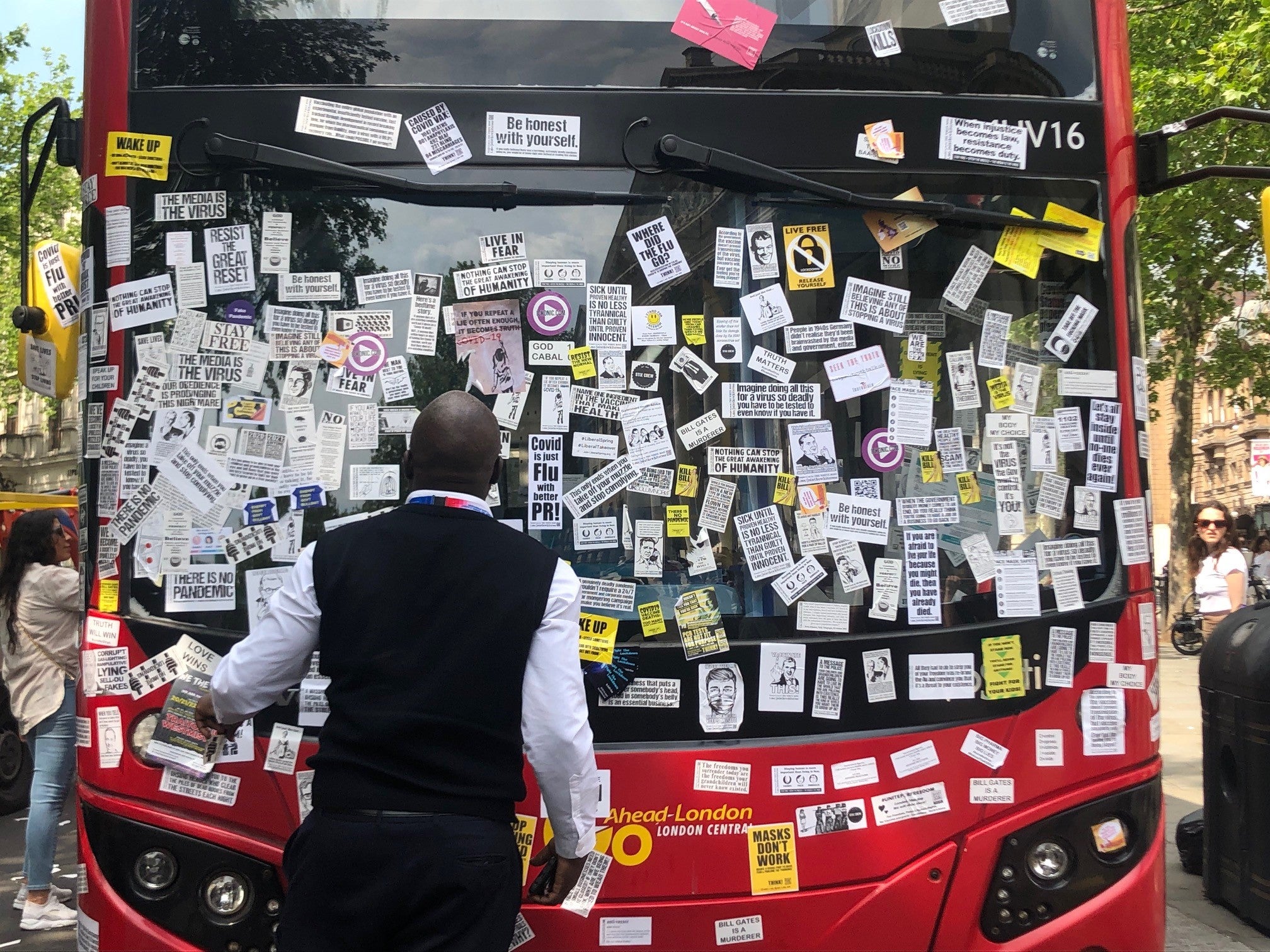Hardcore vaccine refuseniks could need deradicalising like terrorists – expert
There is a small minority of antivaxxers who are ‘very difficult to reach’, according to one expert.

Your support helps us to tell the story
From reproductive rights to climate change to Big Tech, The Independent is on the ground when the story is developing. Whether it's investigating the financials of Elon Musk's pro-Trump PAC or producing our latest documentary, 'The A Word', which shines a light on the American women fighting for reproductive rights, we know how important it is to parse out the facts from the messaging.
At such a critical moment in US history, we need reporters on the ground. Your donation allows us to keep sending journalists to speak to both sides of the story.
The Independent is trusted by Americans across the entire political spectrum. And unlike many other quality news outlets, we choose not to lock Americans out of our reporting and analysis with paywalls. We believe quality journalism should be available to everyone, paid for by those who can afford it.
Your support makes all the difference.A “deradicalisation” programme like those given to former terrorists or cult members might be the only way to dissuade some hardcore antivaxxers from their beliefs, according to one psychology expert.
Around six million eligible people in the UK have not received a single jab a year on from the first Covid vaccination being given in the UK.
Professor Stephan Lewandowsky, chair in cognitive psychology at the University of Bristol, was keen to stress that many of those are likely to be “marginalised” people who are “very difficult to reach for anything”, and for whom access is likely to be the biggest issue rather than psychological or ideological factors.
But for a small section of “hardcore refuseniks”, he said, it may be difficult to reach them by conventional means because their beliefs are so ingrained.
He told the PA news agency: “They’ll refuse anything – ‘I’m not going to wear a mask’, ‘I’m not going to get vaccinated’, ‘I don’t think climate change is happening’, ‘Covid is a hoax’, and, you know, ‘Hillary Clinton is actually a reptilian shapeshifter’.
“You’re getting to people who hold a cluster of very exotic beliefs – now, they’re very difficult to reach.”
Measures that could be used to reach more moderate people who remain unvaccinated, he said, include assigning vaccine appointments to people rather than asking them to book their own, or setting up pop-up clinics in places like supermarkets or shopping centres.
Another measure would be introducing a vaccine mandate, which he said “will disgruntle a few people” but “can be effective”.
But for those with more extreme views, he said, those methods may not be effective.
He added: “In the ideal world, time and money permitting, you can engage even those people in a very slow, long-term process where you affirm their right to have those beliefs… rather than telling them something about themselves they don’t want to hear, let’s put it that way.
“So you tell them something positive, and then engage in what is effectively the same as a deradicalisation process for former terrorists, or cult members.
“Because we’re really talking, when we get down to that small number of committed refusers, we’re talking about the psychology of cults and extremism, and it’s a very similar psychology.”
Mr Lewandowsky said online misinformation is a contributing factor, adding that while some steps had been taken to remove false claims, sites like Facebook and YouTube are “not doing enough”.
“One of the reasons these hardcore refuseniks exist is because they can live in their own ecosystem of misinformation,” he said.
Among those who continue to refuse the Covid vaccines is 44-year-old Paul Barrett from Newcastle, who believes they are “dangerous”.
Mr Barrett said he has researched the topic by watching videos and reading articles online and believes the public is “being lied to”.
“Nothing could make me decide to have this jab, it’s dangerous,” he told PA.
“I’ve had Covid and it’s true I was very ill and could barely breathe for over a week but I survived through my immune system, I’m willing to continue to trust said immune system rather than a jab with so many cases of bad, life-ending side affects.
“I believe we’re being lied to.”
Online Covid misinformation is “a very serious public health issue”, according to one expert.
Imran Ahmed, chief executive of the Centre for Countering Digital Hate, told PA: “People have died, and more still are at greater risk of suffering from Covid, because they got their medical information from Facebook and other social media sites.
“These platforms are chronically polluted because anti-vaxxers have been allowed to dump toxic misinformation into people’s feeds on a daily basis for years with impunity.
“Most people who haven’t been jabbed aren’t what you might refer to as ‘committed anti-vaxxers’ – they are merely vaccine-hesitant, because they’ve been deliberately and cynically targeted with a steady campaign of half-truths, baseless conspiracy theories and outright lies.”